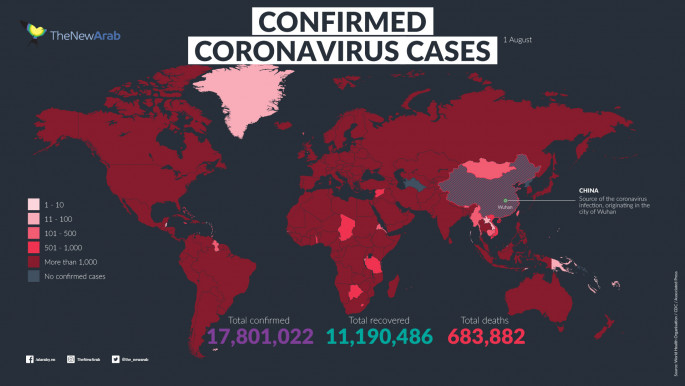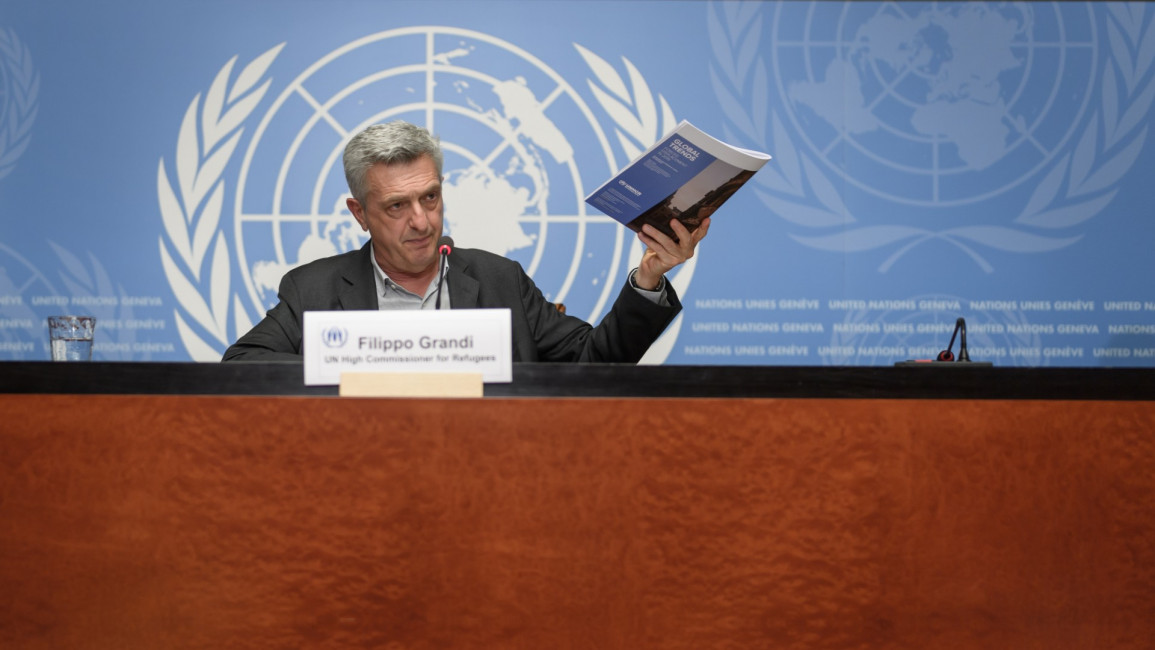Refugees face a 'pandemic of poverty’, UN warns on World Refugee Day
Refugees face a 'pandemic of poverty’, UN warns on World Refugee Day
Refugees are facing Covid-19 challenges that have triggered poverty, UN's Commissioner for Refugees Filippo Grandi said on World Refugee Day.
3 min read
High Commissioner for Refugees Filippo Grandi [Getty]
The United Nations Commissioner for Refugees has said coronavirus caused a “pandemic of poverty” across the world.
Filippo Grandi made the comments on World Refugee Day, which this year falls amid the ongoing global coronavirus pandemic that has ravaged countries across the world, locked down societies and ground economic growth to a halt.
“Covid-19 respects no boundaries,” he said during a televised address.
“Everyone is at risk. Some of the most at risk, however, are the nearly 80 million displaced people worldwide.
"Eighty percent of them are in countries or territories affected by acute food insecurity and malnutrition.
“Imagine going through this crisis without access to soap, clean water or enough food. No hope of isolating your family because you don’t have a home to stay safely inside. That’s the reality for millions of refugees.
“Not only that, the pandemic has compounded existing challenges such as poverty, food insecurity, discrimination, and access to health services, livelihoods and education.
"Covid-19 is a new emergency on top of existing ones,” he added.
Syrian refugees in crisis
Meanwhile, Syrian refugees in Lebanon have called on the United Nations to find a solution for the Syrian crisis and to send them back to their country, in comments made to mark World Refugee Day.
In the town of Bar Elias near the Syrian border in East Lebanon, refugees in Al-Hindi camp are living in dire conditions and lacking food supplies.
The camp hosts 450 Syrian refugees from Homs, Damascus and Quneitra provinces who live in 68 tents.
|
Khaled Shehada, a 68-year Syrian refugee from Homs province told Associated Press that people in the camp were living below the poverty line.
He pleaded with the United Nations to send him back to his country.
He said: "We have been here for ten years, it is becoming too long. With the current expensive life conditions here (in Lebanon) people are now below zero (poverty line)."
The influx of Syrian refuges to the small Middle Eastern neighbouring country Lebanon has weakened the vulnerable state and negatively impacted its economy and infrastructure.
Lebanon has suffered in recent years from a lack of economic growth, high unemployment and a drop in hard currency inflows from abroad.
But the financial crisis erupted after nationwide protests over widespread corruption and decades of mismanagement by the ruling political class engulfed the country in October last year.
The United Nations High Commissioner for Refugees' spokesperson in Lebanon, Lisa Abou Khaled called on the international community and donor countries to keep supporting Lebanon and refugees.
Lebanon, a country with 5 million inhabitants, has absorbed more that 1.5 million Syrians since the start of the Syrian crisis nine years ago.
 |



